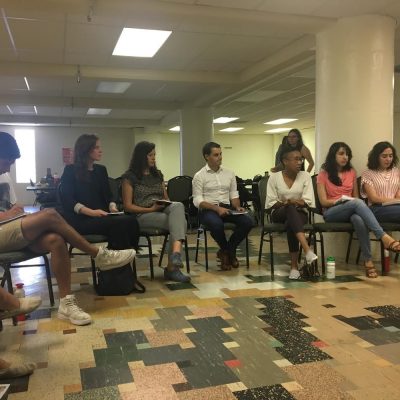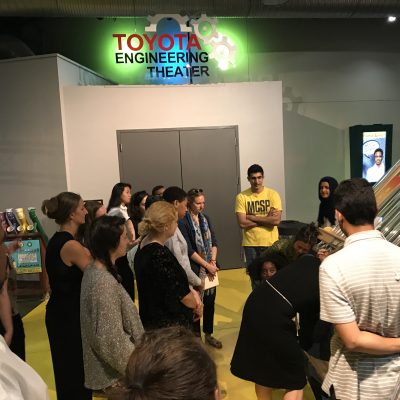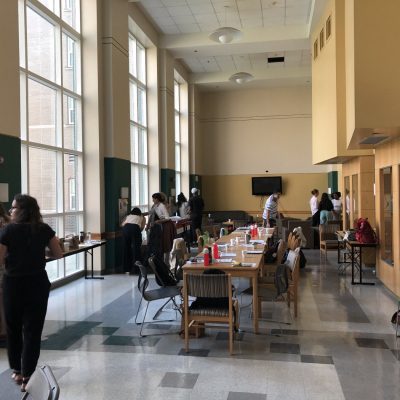Details
Article
This week marked a historic moment for workers worldwide. A feat of international solidarity in an age of rapid technological change, Amazon workers stymied profits via #PrimeDayofAction. While this movement was fronted by workers in Spain and Germany, consumers the world over refused to participate in the annual shopping event in protest of unsafe warehouse conditions and excessive pressure in the workplace. This emphasis on the power that grows from the recognition of our interconnected struggles and humanity reminded me of what initially drew me to Humanity in Action, and renewed my longstanding interest in labor rights. Today’s discussion of the present and future of work was, as a result, a relevant and provocative space.
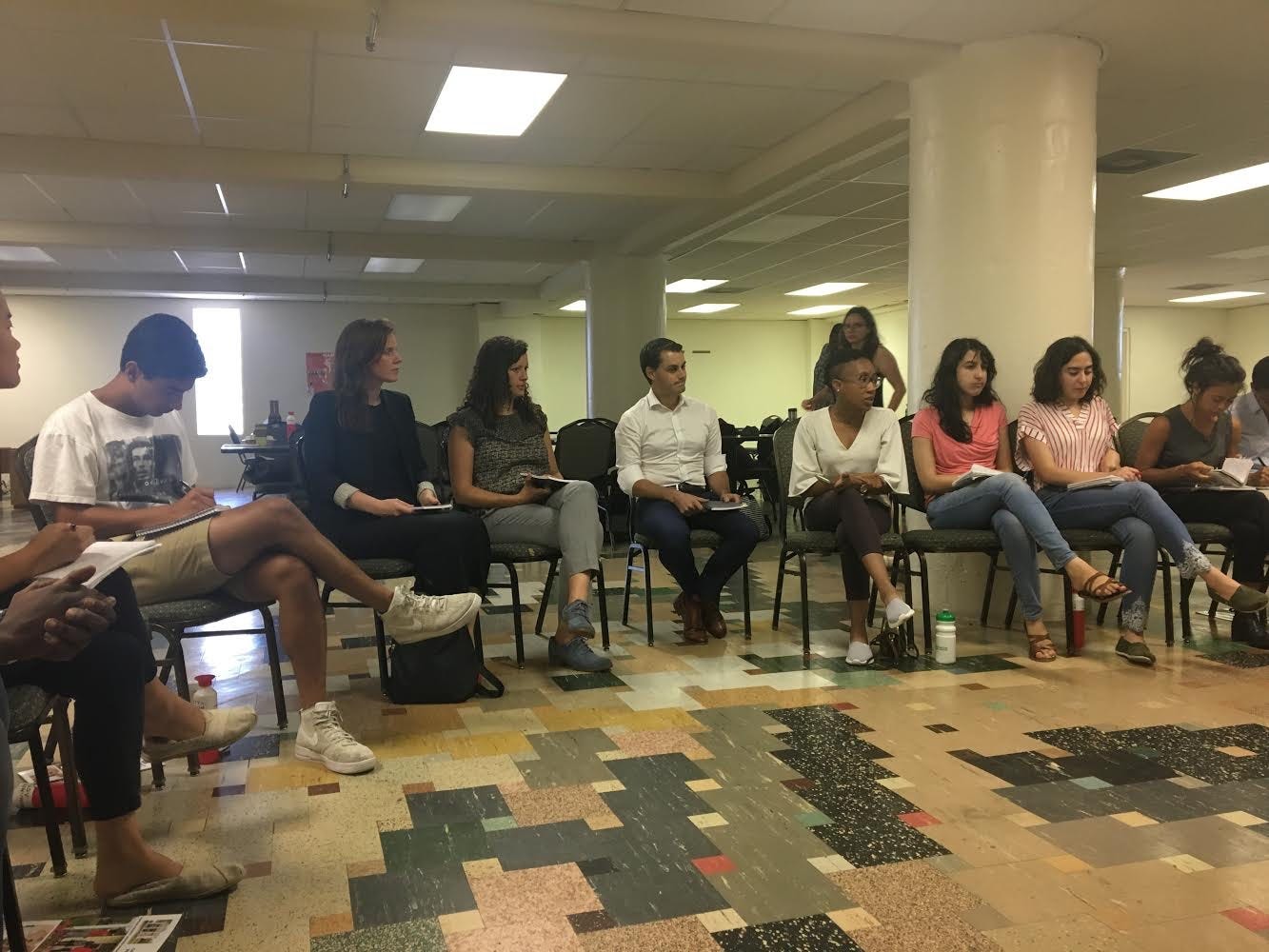
The day began with a presentation and conversation with Detroit Free Press journalist John Gallagher, who frequently reports on Detroit’s changing labor landscape. Pointing to the effects of over-incarceration, historic discrimination within unions, and the rise of “bad jobs” (jobs with low-pay, no benefits, and unpredictable schedules) he emphasized the need for serious reinvention. While Detroiters have been innovative in creating new opportunities for themselves (like urban gardening), policymakers and unions have failed to keep up. Groups have recognized both the spike in entrepreneurialism and the dire need for a renewed discussion in workers’ rights as new jobs (such as the emergence of baristas over the past decade) proliferate. I appreciated Gallagher’s optimistic perspective, especially regarding middle-aged and formerly-incarcerated workers. After this talk, I was assured that Detroit will be a site of change that will benefit workers across the U.S.

Reverend Faith Fowler of Cass Community Social Services highlighted the intersection of housing and employment. Reverend Fowler discussed the approach that Cass has taken, especially after the 2008 financial crisis. During the recession, she noticed that day labor and part-time jobs like those at McDonald’s were disappearing. Through tire mat making, paper shredding, and solar panel installation enterprises started by Cass, community members have been able to overcome some of these barriers. Significantly, these efforts have been paired with other initiatives, including one that builds tiny homes, which enables Detroiters who are often shut out of housing (particularly people with disabilities or mental health issues, and youth who have aged out of foster care) to become homeowners. Taken together, these initiatives add to the place-based solutions to Detroit’s labor questions.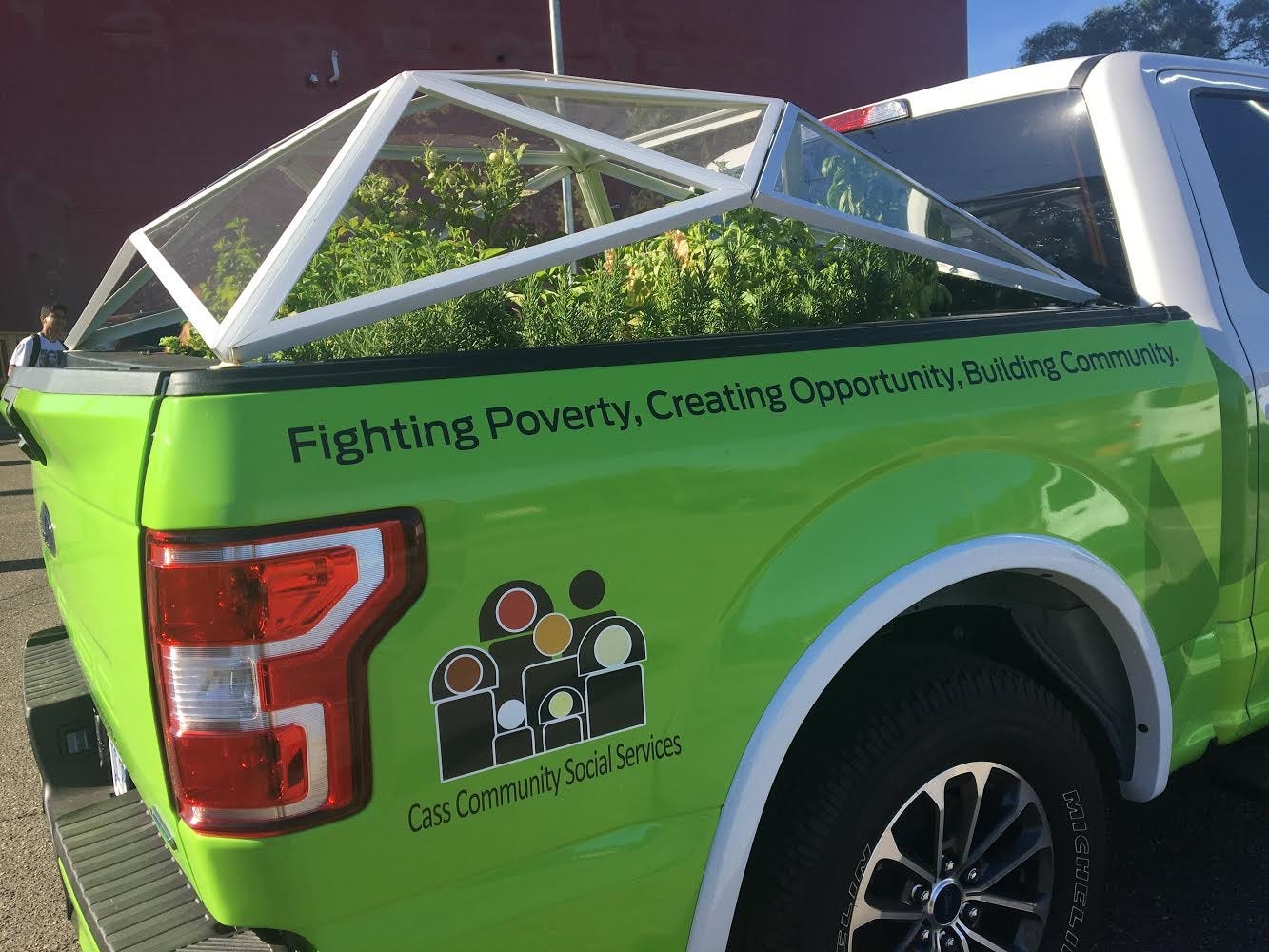
In the final session of the day, we heard from Jeffrey Brown of the Bertelsmann Foundation, Chioke Mose-Telesford from the City of Detroit, and Aniela Kuzon of Ford Motor Company on automation and the future of work. Mose-Teleford raised the issue that 200,000 of Detroit’s 450,000 workers lack foundational skills, which include digital literacy. Part of the solution in Detroit includes employer-led training (which was popular in the 1980s and 90s) and the reopening of defunct vocational schools. Addressing the commuting distance between working and living locations, a significant concern for Detroiters, Kuzon emphasized the role of urban planning in fostering equitable access to jobs via mixed-use development. Because of these chasms, many Detroit residents feel excluded from the present and future of work, especially considering the amount of jobs that have left the city and the lack of adequate public transit. For those already vulnerable, as Reverend Fowler touched upon, any changes in the labor world will have pronounced effects. Considering the inextricable ties between the resources available at home and at work, like access to computers, has the potential to enable adequate protections for all workers.
With this understanding of the rapidly-changing nature of our present labor landscape, it is critical that people in all sectors are committed to sustainability, and equity for workers. Detroit, we have witnessed, working proactively with these changes clearly in sight. As today’s speakers exemplified, we will undoubtedly make our cities the best places they can be if they are places where work works for everyone.

